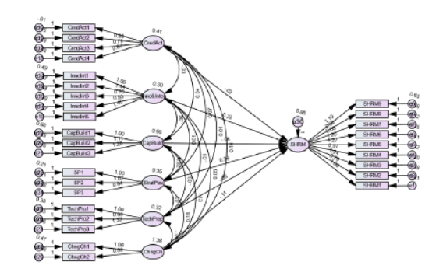


Indian Journal of Science and Technology
Year: 2023, Volume: 16, Issue: 22, Pages: 1645-1656
Original Article
Anurag Chourasia1*, P C Bahuguna2
1School of Business, University of Petroleum and Energy Studies, Dehradun
2Senior Associate Professor, Department of General Management, School of Business, University of Petroleum and Energy Studies, Dehradun
*Corresponding Author
Email: [email protected]
Received Date:16 February 2023, Accepted Date:18 May 2023, Published Date:07 June 2023
Objective: Although research on Strategic Human Resource Management (SHRM) has surged in the last 10 years, however, the effect of HR managers’ HR Competencies on SHRM implementation it’s still less explored. Methods: This study, intends to investigate how HR managers’ HR abilities contribute to the implementation of SHRM in organizations in oil & gas sector in India. The survey collects the opinions of 157 executives with more than ten years of experience on the use of SHRM and the global HR skills of HR managers in the Indian oil and gas sector. Analysis for data was conducted through Structural equation modelling. Findings : Findings reveal that Strategic positioner and innovator and integrator competencies are significantly related to SHRM implementation. Conversely, capability builder, change agent, credible activist, and Technology proponent competencies do not find support in implementing SHRM in this study. This study is anchored on the Causal Attribution theory. This study makes a significant contribution by empirically examining the link between the competencies of HR managers and SHRM. It also has practical implications for HRM practitioners and senior management on how to appropriately choose, prepare, and equip HR managers to enable effective implementation of SHRM. Novelty: This study is the first empirical study to identify the effect of HR managers’ HR competencies on implementation of Strategic HRM in public sector context.
Keywords: Strategic HRM; HR Competencies; Causal attribution theory
© 2023 Chourasia & Bahuguna. This is an open-access article distributed under the terms of the Creative Commons Attribution License, which permits unrestricted use, distribution, and reproduction in any medium, provided the original author and source are credited. Published By Indian Society for Education and Environment (iSee)
Subscribe now for latest articles and news.